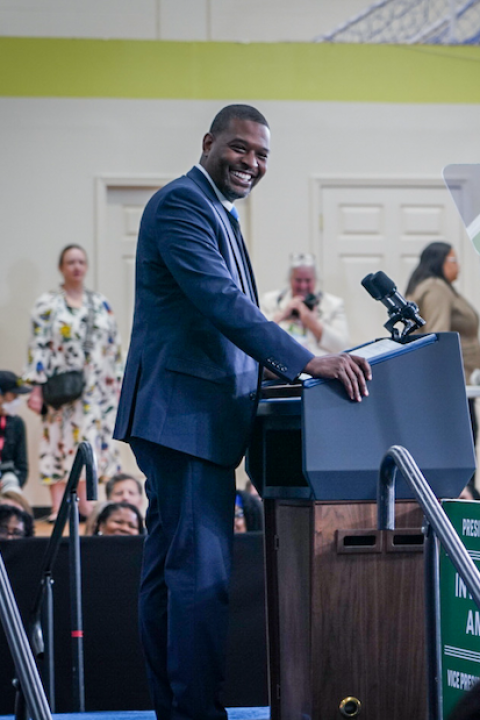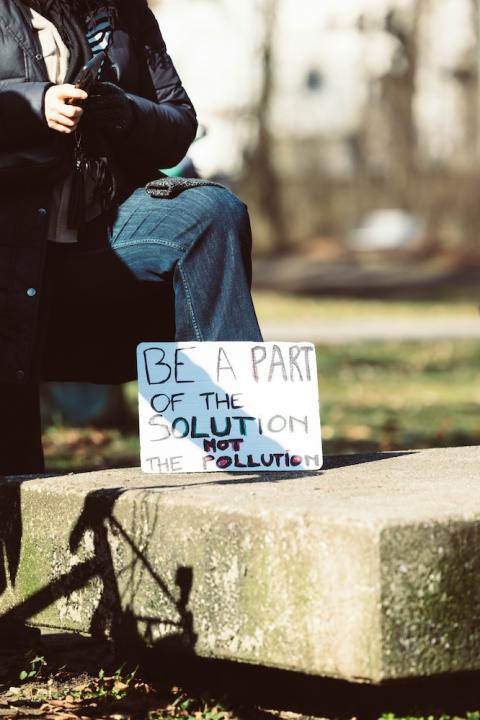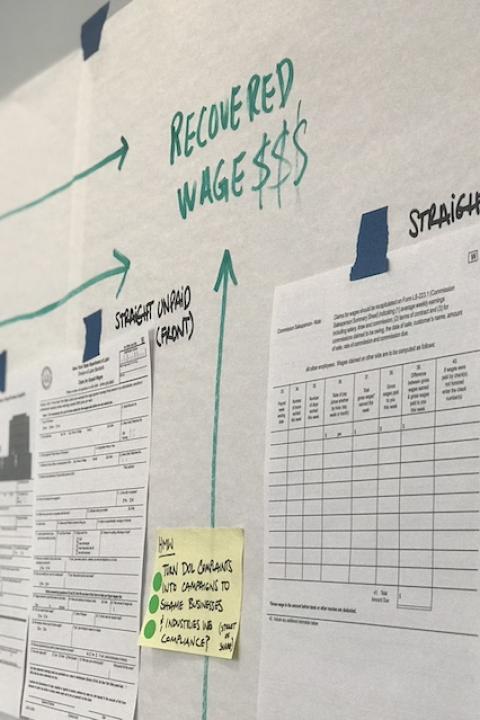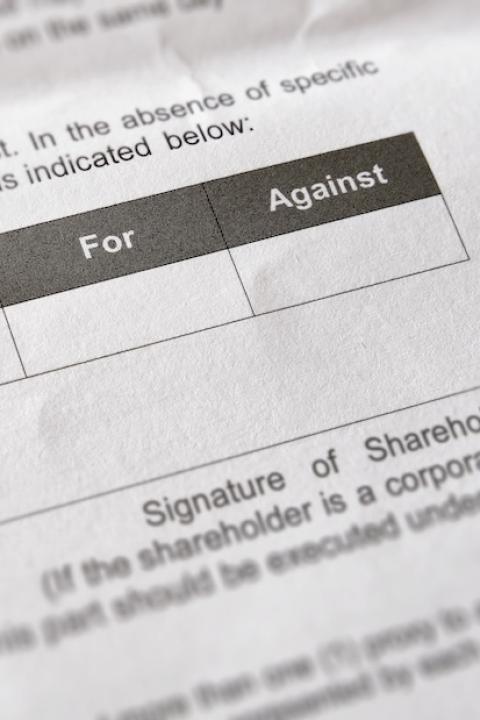
(Image credit: My Ocean studio/Adobe Stock)
Last year we saw global brands speak out on voting rights, LGBTQ+ equality, expanding access to renewable energy and more. And at the World Economic Forum's annual meeting in Davos, Switzerland, this month, issues top of mind for business leaders included the rise of artificial intelligence (AI) and the need to uphold democracy as half the world's population prepares to vote in national elections in 2024. Along with another critical year in the fight against climate change, these issues are sure to be at the forefront for brands as we head into the new year.
"Anti-ESG" backlash in the U.S. still has leaders worried
Environmental, social and governance (ESG) principles are used to measure and mitigate an organization's impact on society and the environment. Companies use ESG principles to understand the impacts they have today, as well as their future risks, and make plans to reduce them. Some investors then analyze corporate ESG strategies as they decide where to put their money, with the philosophy that the companies planning for the future may be wiser long-term investments than those that aren't.
By any other name, this type of auditing and risk assessment is standard business practice and certainly nothing new, but pushback from a vocal minority of politicians and pundits has it seeming downright scandalous in the U.S. Their arguments against ESG are scattered: Some take aim at investors for using ESG screens in decision-making, saying it harms financial returns, while others dismiss brand ESG strategies as lip service and "woke capitalism" that wastes shareholder money. The uncertainty that comes with the moving target has many business leaders concerned, with some saying they now talk less about ESG or use other terms like "sustainability," although they haven't actually changed their ESG strategies.
In the early weeks of the year, the newswires are brimming with thought leaders sharing their perspectives about how business leaders should cope with this complex environment. Impact communicators including Carol Cone, Susan McPherson, Andrew Winston, and TriplePundit contributors Tina Casey and Amy Brown are among those to weigh in over recent weeks.
Specificity over jargon came out as a key theme. Trading vague claims about "ESG leadership" for clear language that explains specific programming and its value makes it less likely a brand will draw ire from ESG critics or be accused of greenwashing by regulators. As Daryl Brewster, who leads the nonprofit Chief Executives for Corporate Purpose (CECP), told the Wall Street Journal earlier this month: “You can be anti-ESG. It’s hard to be anti-responsibility.” While critics may take issue with an acronym, it's much harder to make a compelling case against saving water and energy, reducing pollution, or protecting human rights.
Even some conservative lawmakers now see the ESG debate as a political football they'd rather boot to the sidelines. In a letter to the U.S. House Financial Services Committee, free-market groups with center-right political leanings advised legislators to avoid passing "more bans or mandates targeting the investment decisions of individuals, pension funds, or businesses," Axios reported last week.
A changing regulatory and reporting environment comes with growing pains
Outside the U.S., jurisdictions are moving to make it mandatory for large companies to publicly report how they impact people and the environment. Canada and Australia are among the countries that will mandate ESG reporting starting this year.
Meanwhile the European Union's corporate sustainability due diligence directive (CSDDD) came into force in 2023, requiring large companies to disclose their risks and impacts related to the environment and human rights. By 2026, companies selling goods and services in the EU will also be banned from using terms like “climate neutral” that rely on carbon offsets, which lawmakers say mislead consumers.
In the U.S., California's mandatory climate reporting law will come into force in 2026, compelling around 5,500 companies doing business in the state to disclose their greenhouse gas emissions. Federal climate reporting guidance from the U.S. Securities and Exchange Commission (SEC) is still pending as conservative Congressional lawmakers launched hearings and probes into the prospective regulation. New research finds many of these lawmakers received a combined $155 million in donations from the oil and gas industry as they fought the SEC rule. After being pushed back several times, the release of the SEC guidance is now expected this spring.
All of these various requirements popping up around the world present real challenges for global companies. Adding to the confusion is that many companies use different standards to report on their impacts today — including those from the Global Reporting Initiative (GRI), the Sustainability Accounting Standards Board (SASB) and the Task Force on Climate-Related Financial Disclosures (TCFD). A new unified reporting directive under the International Sustainability Standards Board could aid business leaders who are "choking on the alphabet soup" of various reporting requirements, but in the near-term, adapting to the unified standard will be a task in itself heading into 2024, TriplePundit's Amy Brown reported.
Book bans threaten free discourse and education in the U.S.
In last week's edition of our Brands Taking Stands newsletter, we took a closer look at how lawsuits against U.S. financial funds that support entrepreneurs of color put racial equity efforts in jeopardy. Another issue that should be on business leaders' radar is the increasingly common and decidedly dystopian practice of book banning at U.S. public schools.
The nonprofit Pen America tracked more than 3,300 instances of book banning over the 2022-2023 school year, an increase of 33 percent over the year prior. "Authors whose books are targeted are most frequently female, people of color, and/or LGBTQ+ individuals," it found. Toni Morrison's "Beloved" and Harper Lee's "To Kill a Mockingbird" are among the titles banned at some U.S. schools, Deborah Caldwell-Stone, director of the American Library Association's Office of Intellectual Freedom, told CBS News.
An estimated 18 U.S. states have also moved to restrict how race and gender are discussed in the classroom — which advocates say erases the country's violent and racist history of chattel slavery while ignoring the experiences of women and LGBTQ+ people.
To be clear, these moves are hugely unpopular with voters: 85 percent of respondents to a 2023 survey agreed that public school students "should learn about the history of racism and slavery in the United States and how it continues to affect us today." Even some conservative lawmakers seem to agree the book bans have gone too far. In Florida, among the states with the most book bans in the country, lawmakers are considering legislation to make it more difficult to challenge books en masse by instituting a $100 per book fee for challenges brought by people whose children do not attend school in a given district, independent journalist Judd Legum reported this week.
Given how the U.S. public feels about book banning, it's surprising more brands haven't spoken out about the issue, and this is clearly an area for attention in 2024.
U.S. abortion restrictions put employees and incoming talent at risk
In the 2022 Dobbs v. Jackson Women’s Health Organization decision, the U.S. Supreme Court overturned the federal protections for abortion that existed since the landmark Roe v. Wade case in 1973. In the months since, 14 U.S. states have passed laws that almost completely ban abortions, according to tracking from The Guardian. Others restricted access after six weeks of pregnancy, before many know they're pregnant.
These bans carry dangerous implications for those already living in these states and also make others less inclined to move there, which could have a heavy impact on businesses and their ability to attract top talent, TriplePundit's Tina Casey observed earlier this month. For example, 66 percent of surveyed workers who do not live in Texas said its strict abortion ban would "discourage them from taking a job there," and 63 percent said they wouldn't even consider a job in a state that banned reproductive care, according to an amicus brief filed in a Texas case that seeks to clarify how the state's law is applied in medical emergencies.
Shortly after Dobbs, large companies including Salesforce, JPMorgan Chase, Levi Strauss and Condé Nast publicly pledged to cover travel expenses for employees who need to leave their state for an abortion due to restrictions. Although helpful to some seeking care, pledges like these fail to account for emergency services — and in places like Texas, medical workers are not required to provide an abortion under existing laws, even in cases where the patient's life is at risk.
Companies including the dating app Bumble signed on to the amicus brief in support of clarity on the Texas law for emergency medical providers and their patients. In her analysis, Casey sees moves like these as a new way for companies to find their voice on abortion care, without making moral judgment and instead focusing on how ambiguities in these laws can cause harm.
What's on your mind in 2024?
What topics, trends and challenges are on your mind heading into 2024? Your feedback is a constant source of inspiration for our coverage, and we always love to hear from you. Please share any thoughts here, and here's to a great year ahead!

Mary has reported on sustainability and social impact for over a decade and now serves as executive editor of TriplePundit. She is also the general manager of TriplePundit's Brand Studio, which has worked with dozens of organizations on sustainability storytelling, and VP of content for TriplePundit's parent company 3BL.














